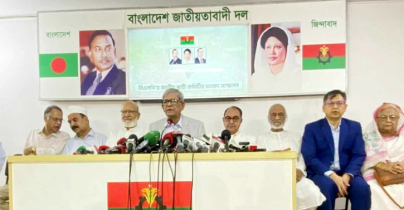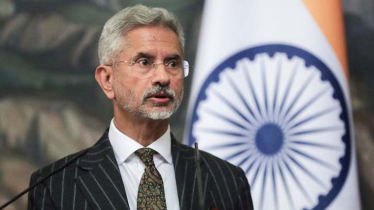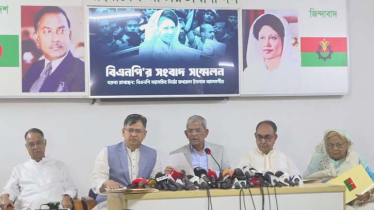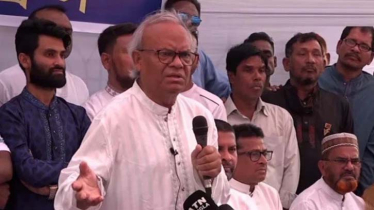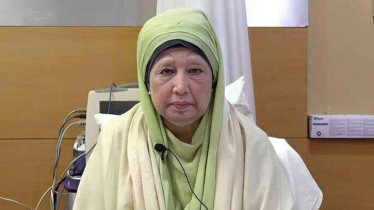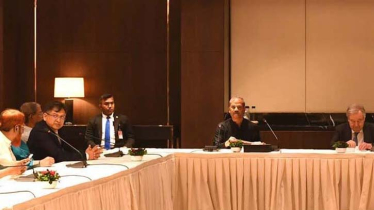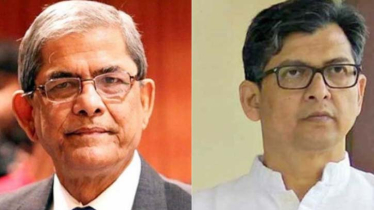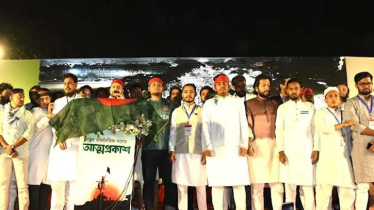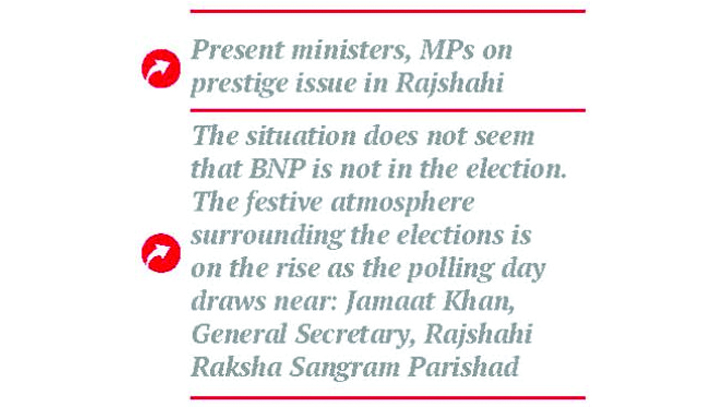
Photo: Messenger
The vibrant city of Rajshahi is gearing up for the upcoming voting festival on January 7th, where approximately 22 lakh eager voters are poised to exercise their democratic rights. Despite the absence of the Bangladesh Nationalist Party (BNP) in the national elections, the political landscape has not lost its fervor. Independent candidates have successfully ignited enthusiasm among the electorate, injecting vitality into the electoral process.
Jamaat Khan, the General Secretary of Rajshahi Raksha Sangram Parishad, shared insights with The Daily Messenger, stating, "From our observations, a polling festival-like atmosphere has commenced." Initial concerns suggested a potential one-sided affair, with a subdued voting mood. However, the current scenario paints a contrasting picture. The presence of independent candidates has dynamically altered the landscape, breathing life into the electoral process.
Jamaat Khan further noted that the festive atmosphere surrounding the elections is on the rise as the polling day draws near.
Rajshahi boasts a total of 6 parliamentary seats, with the Sadar constituency alone hosting over 3.5 lakh voters. The remaining 5 constituencies together account for approximately 19.5 lakhs. Notably, Rajshahi-2 seat, currently held by Fazle Hossain Badsha, the General Secretary of the 14-party Workers Party, is witnessing a compelling electoral scenario.
In a departure from the norm, Shafiqur Rahman Badsha, the Metropolitan Awami League vice-president, has emerged as an independent candidate, setting the stage for an intense political showdown. Fazle Hossain Badsha, the incumbent MP, is now poised to face formidable competition, particularly from the dynamic and influential Shafiqur Rahman Badsha. The electoral landscape suggests that the outcome is uncertain, and Shafiqur Rahman Badsha stands a chance of winning over a substantial number of voters.
In Rajshahi-2 Tanor Godagari constituency, the incumbent MP Omar Farooq Chowdhury faces notable challenges from actress Mahia Mahi and Awami League leader Gholam Rabbani. Their presence adds a significant layer of competition, making the electoral landscape intensely contested. Rajshahi-4 seat in Bagmara also witnesses heightened tension as the current MP Engineer Enamul Haque, denied party nomination, competes fiercely as an independent candidate against Abul Kalam Azad, the party's nominee. Clash incidents between their supporters contribute to the already tense atmosphere in the area. There have already been several clashes between supporters of the two. Due to this, there is a lot of tension in the area.
Meanwhile, Rajshahi-6 Constituency, represented by the current Minister of State for Foreign Affairs Shahriar Alam, experiences a unique situation. Despite securing the party nomination, it is far from a straightforward victory, as independent candidate Raihan Alam emerges as a formidable obstacle.
In contrast, Rajshahi-3 Paba Mohanpur and Rajshahi-5 Puthia Durgapur seem to lack strong contenders against Asaduzzaman Asad and Abdul Wadud Dara, respectively. This absence of strong opposition positions these incumbents favorably, making them appear relatively more secure in their electoral campaigns.
Rajshahi University Professor Sarwar Jahan told The Daily Messenger that the upcoming election is set to transpire without the presence of one of the largest political parties in the country. The Prime Minister, in emphasising the importance of free and fair elections, has consistently stressed the need for broad participation. Consequently, she has shown flexibility by endorsing independent candidates affiliated with her party.
“This factor contributes to the absence of a single-party election in this region. Instead, we anticipate a competitive electoral scenario with multiple contenders vying for success as we closely follow the unfolding campaign.”
When asked about the acceptability of the election, he pointed out that in the case of the BNP’s participation in the election, this issue wouldn't have arisen. However, the BNP has officially declared their decision not to participate in elections conducted under the current government. Presently, they are actively advocating for their demands, and only time will reveal the extent of success they achieve in this ongoing movement.
Conversely, the entire area is now adorned with posters, banners, and festoons, creating a vibrant and visually striking atmosphere. Concurrently, extensive election public communication efforts are underway, actively engaging the electorate. Candidates are making their appeals to voters within the region, employing various strategies such as workers' marches and the use of campaign songs. Altogether, the pervasive festive ambiance of the election is palpable in every corner of the area.
Messenger/Sun Yath

